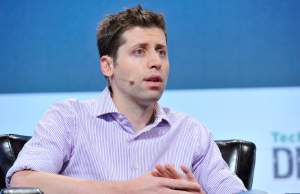Google Q2 Earnings Strong As Focus Shifts to Hardware, But It’s Still An Advertising Company
![]() Google reported earnings for the second quarter of 2012 – it’s first earnings statement since the closure of the Motorola Mobility acquisition at the end of May- posting a very strong $2.79 billion, or $8.42 a share, on revenue of $9.61 billion (excluding the costs of traffic acquisition).
Google reported earnings for the second quarter of 2012 – it’s first earnings statement since the closure of the Motorola Mobility acquisition at the end of May- posting a very strong $2.79 billion, or $8.42 a share, on revenue of $9.61 billion (excluding the costs of traffic acquisition).
The problem is that Wall Street was looking for $10.04 a share on revenue of $8.41 billion. Not that investors seem to mind terribly – Google stock has been up around four percent since Google made the announcement.
“Google standalone had a strong quarter with 21% year-on-year revenue growth, and we launched a bunch of exciting new products at I/O – in particular the Nexus 7 tablet, which has received rave reviews. This quarter is also special because Motorola is now part of the Google family, and we’re excited about the potential to build great devices for users,” said Google CEO Larry Page in a prepared statement.
And speaking of Motorola Mobility, the earnings statement indicates that Motorola revenues were $1.25 billion: $843 million in mobile and the rest in home electronic sales.
As ZDNet’s Rachel King notes, there’s still plenty of skepticism around Google’s move into the hardware market. Motorola Mobility will retain its independence and will continue on as an Android licensee, likely to keep the rest of Google’s Android handset manufacturing partners happy. But investors are still wondering if diversification into mobile is a wise move for the search giant.
And a search giant is what Google remains. Google can brag all it wants about customers for the Google Apps productivity suite, or that Android and the Google Play is seeing a huge uptick, but the real revenue growth for Google is still being driven by advertising. On the conference call announcing the earnings, Google Chief Business Officer Nikesh Arora hyped YouTube as “a proven winner for the ecosystem,” and $11 billion of revenues came from “advertising and other” sources, showing where the company’s priorities lie.
So the real question here is simply this: Is a hardware strategy a major part of an effort for Google to diversify its revenues outside of its advertising goldmine, or are the critics who say that Google has its fingers in too many pies correct? It’s an especially pressing question in light of CEO Larry Page’s absence from both the Google I/O conference and this earnings call due to health issues. It’s going to be interesting finding out exactly what Google’s roadmap here is.
A message from John Furrier, co-founder of SiliconANGLE:
Your vote of support is important to us and it helps us keep the content FREE.
One click below supports our mission to provide free, deep, and relevant content.
Join our community on YouTube
Join the community that includes more than 15,000 #CubeAlumni experts, including Amazon.com CEO Andy Jassy, Dell Technologies founder and CEO Michael Dell, Intel CEO Pat Gelsinger, and many more luminaries and experts.
THANK YOU













